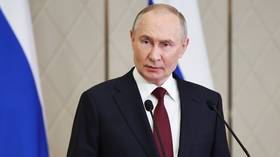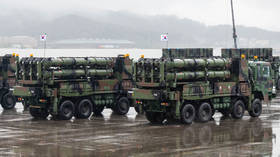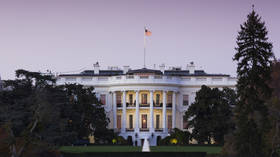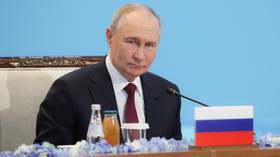OPEC cuts & US sanctions against Iran and Venezuela boosting global crude prices

Oil prices are gaining on Tuesday as the OPEC-led supply deal and US penalties against Iran and Venezuela begin to take hold after crude futures hit two-week lows earlier this week.
West Texas Intermediate (WTI) crude saw a 0.42-percent rise to $52.63 a barrel, while Brent blend was up 0.44 percent and trading at $61.78 per barrel as of 06:34 GMT. On Monday, April Brent crude futures dropped around one percent, reaching minimum since January 29.
The moderate growth is reportedly tied to the voluntary output cuts led by the Organization of the Petroleum Exporting Countries (OPEC) and its non-OPEC allies. The cartel and the world’s biggest exporter, Saudi Arabia, slashed its output more than expected under the OPEC deal, to 10.2 million barrels a day in January and is aiming to pump around 100,000 barrels less in February.
Also on rt.com Venezuelan oil exports plunge on ‘harsher’ US sanctionsAccording to the agreement clinched in December, Saudi Arabia alone has reportedly reduced production of crude by nearly 400,000 barrels per day to 10.24 million barrels.
Moreover, economic sanctions introduced by Washington against Venezuela and Iran are bolstering crude prices by enforcing a global supply limit.
However, analysts are warning that record US supply and anticipated economic slowdown later this year might start capping the world’s oil markets.
“The worries of oversupply stemming from the US will likely remain a dominant theme as we approach the warmer months,” Edward Moya, market analyst at futures brokerage OANDA, told Reuters.
For more stories on economy & finance visit RT's business section














